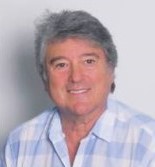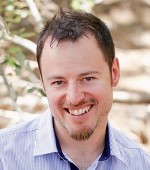in the Covid-19 Pandemic
FEATURED PAPER
By Prof. Pieter Steyn
and
Dr. Roché Steyn
Cranefield College
South Africa
ABSTRACT
There have been significant shortcomings in the approach in dealing with the ramifications of Covid-19. This article makes recommendations regarding the approach to be applied by those responsible. The herein proposed independent strategic policy advisory (SPA) units – ideally one in each country dealing with Covid-19 – are central to the approach. It is further essential to apply the proposed pharmaceutical product research and innovation development (RID) project model as part of the SPA system, so as to ensure knowledge creation through innovation and to deliver the trust and openness required to serve and satisfy society.
INTRODUCTION
Effective and efficient management science is predicated upon the three pillars of ethics, responsibility and sustainability, and the attendant management functions of leading, creating, implementing and improving. The management function of leading assumes the number one spot in the prevailing Industry 4.0 economy and, as the late General Colin Powell once said: “Leadership is the art of accomplishing more than the science of management says is possible.” The 21st century has brought with it a higher consciousness evolution, and the human race is witnessing a rapid technology revolution as well as other revolutions on many frontiers. A sound application of the principles and techniques encompassed in the functions of creating (which involves planning and organizing) and implementing (which involves monitoring and control) is as fundamental as ever in managing projects. Finally, improving is particularly vital since it is the management function that promotes systems thinking and applies total quality management (TQM) philosophy in continuous improvement and knowledge management.
Leadership has on the one hand a strategy focus, and on the other hand a people focus. Having a strategy focus is about positioning an organization in the internal and external environment to ensure that it adds value to itself and society in a responsible and ethical manner. Leadership entails a creative journey with people, and ensures that people operate in high-performance teams created by placing the right talents in specific roles as the situation demands. Human capital is recognized as the foundation of value creation. Leading and building on the strengths of human capital means having a solid understanding of people and their relationships, and building on their cognitive and conative talents. Importantly, the people focus extends to the benefits accruing to society from achieving the strategic objectives resulting from sound leadership.
Since society and markets are interlinked through continents and trade, no single micro-economy can escape the impact of the world macro-economy, fluctuating currency rates, inflation, or other ramifications resulting from poor leadership and management. Hence, through sound role-modelling and actions, leaders should take great care not to negatively impact economic and social stability. An inability to conform to these values and principles generally results in uncoordinated and unintegrated actions where people focus on their own agendas and objectives without due regard to the greater context. This inadvertently leads to a dearth of ethics, responsibility and sustainability that proves detrimental to society and the economy, as is evident from the ramifications occurring in the Covid-19 situation.
Around the world, the Covid-19 pandemic has been marked by the absence of a formal strategic policy development unit to integrate and coordinate important facts and information flowing from research results of pharmaceutical manufacturers, research institutions and a host of other sources. This shortcoming resulted, and continues to result, in disparate and poorly managed opinions, actions and policies that have led to confusion and serious social, economic and legal ramifications. The present article discusses the features of the type of formal strategic policy development unit that should have been created by each country in dealing with Covid-19.
More…
To read entire paper, click here
How to cite this paper: Steyn, P. and Steyn, R. (2022). Addressing the Dearth of Management Science in the Covid-19 Pandemic; PM World Journal, Vol. XI, Issue V, May. Available online at https://pmworldlibrary.net/wp-content/uploads/2022/05/pmwj117-May2022-Steyn-Steyn-Dearth-of-Management-Science-during-covid-19-pandemic.pdf
About the Authors

Prof Dr. Pieter Steyn
Cranefield College
South Africa
![]()
Dr. Pieter Steyn is Founder and Principal of Cranefield College, a South African Council on Higher Education / Department of Education accredited and registered Private Higher Education Institution. Cranefield offers an Advanced Certificate, Advanced Diploma, Batchelor of Business Administration degree, Postgraduate Diploma, Master’s degree (MCom), and PhD. He holds the degrees BSc (Eng), MBA and Doctor of Commerce, and is a registered Professional Engineer.
He was formerly professor in the Department of Management, University of South Africa and Pretoria University Business School. He founded the Production Management Institute of South Africa, and in 1979 pioneered Project Management as a university subject at the post-graduate level at the University of South Africa. Prof Steyn also taught at the Chung-Shan Institute of Science and Technology in Taiwan as a guest lecturer.
He founded consulting engineering firm Steyn and Van Rensburg (SVR). Projects by SVR include First National Bank Head Office (Bank City), Standard Bank Head Office, Mandela Square Shopping Centre (all in Johannesburg), as also, Game City- and The Wheel Shopping Centres (in Durban). He, inter alia, chaired the Commission of Enquiry into the Swaziland Civil Service; and acted as Programme Manager for the Strategic Transformation of the Gauteng Government’s Welfare Department and Corporate Core.
Prof Steyn is a contributing author of the “International Handbook of Production and Operations Management,” (Cassell, London, 1989, ed. Ray Wild) and is the author of many articles and papers on leadership and management. He is a member of the Association of Business Leadership, Industrial Engineering Institute, Engineering Association of South Africa, and Project Management South Africa (PMSA); and a former member of the Research Management Board of IPMA. He serves on the Editorial Board of the PM World Journal. Moreover, he is the owner of the Aan’t Vette Wine Estate and De Doornkraal Vinotel (4-star hotel) in Riversdale, Western Cape.
Prof Steyn can be contacted at cranefield1@cranefield.ac.za. For information about Cranefield College, visit www.cranefield.ac.za.

Dr. Roché Steyn
Medicolegal specialist, Multiplin LLP.
Principal Lecturer at Cranefield College.
South Africa
![]()
Dr Roché Steyn is a medicolegal specialist (in malpractice prevention and resolution) with Multiplin LLP and an interdisciplinary lecturer at Cranefield College. He has published and lectured in law, medicine, psychology and management, on both intradisciplinary and interdisciplinary levels, particularly in the following areas: malpractice prevention and liability in medicine and psychology (informed by management science); project and program management applied in multidisciplinary contexts; multinational criminal and delictual/tortious liability; legal (forensic) psychology and business psychology; and evidence-based integrative and preventive medicine (again, informed by management science and medicolegal analysis).
Dr Steyn holds the qualifications BLC, LLB, HonsBA(Psych), LLM(Med), AdvDip(PM), and LLD. His undergraduate studies combined law and psychology (in the primarily legal BLC degree, with additional courses in psychology and criminology), followed by the simultaneous completion of the LLB degree and Honours degree in psychology (having been granted special permission to complete these degrees simultaneously). He then went on to combine studies in medical law (focusing on malpractice liability in clinical psychology and psychiatry) and management, completing the LLM with specialisation in Medical Law and the Advanced Diploma in Project Management concurrently. He was awarded the Carmen Nathan Grant of the Unit for Medicine and Law to conduct medicolegal research in the United States for the purpose of his LLM(Med). The simultaneous completion of the LLM(Med) and the AdvDip(PM) allowed him also to incorporate selected principles of management into his LLM dissertation. He achieved distinctions in each of the requirements for the LLM and obtained both the AdvDip(PM) and the LLM(Med) cum laude.
By the time of completing the above qualifications, he had started developing a multidisciplinary consultancy in collaboration with partners who also had interdisciplinary qualifications, named Multiplin. Part of Multiplin’s mission was to create courses for professionals in furthering the cause of integrative multidisciplinary development. On the basis of his performance in his LLM(Med), he was selected to receive the H Bradlow Scholarship to support him in his doctoral work on the interactions of law, medicine, psychology and management, with Professor SA Strauss SC as his promoter (at the University of South Africa). Being based in England at the time, he also started teaching part-time at Leicester University (where he taught medical law, tort law and criminal law) and Multiplin LLP was incorporated in England and Wales to further the purpose of promoting integrative multidisciplinary development through consulting and education.
Following successful completion of his doctorate degree (LLD), he was appointed as a Principal Lecturer at Cranefield College, where he then led the successful implementation of Multiplin-developed courses through distance learning, which mode of delivery he initiated at the College. He subsequently assisted the College in the accreditation of its PhD in Commerce and Administration through distance learning, and provided strategic and legal advice in converting the College from a mixed-mode institution (with students needing to attend selected onsite classes) to a full distance-mode institution (with all programs being susceptible of completion through online classes from anywhere in the world).
In his writing, teaching and practice, he steadfastly advocates the need for partnership and integration between disciplines (particularly in his specialised areas of medicine and law, and relevant areas of psychology and management) and also holistic perspective and integration within disciplines (as is indeed imperative for the different areas within medicine, management, psychology and law).









